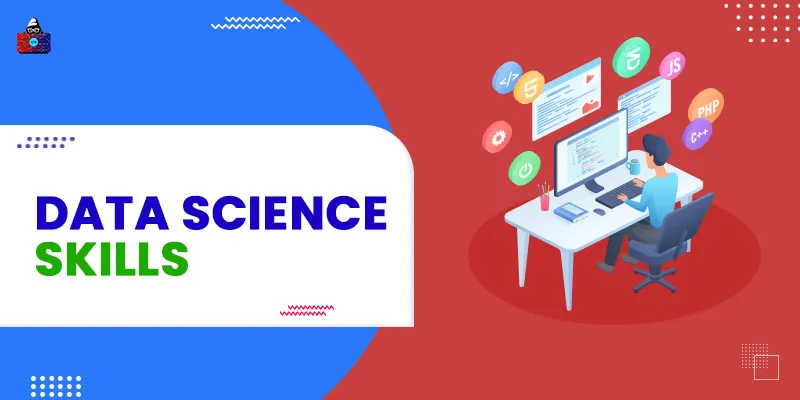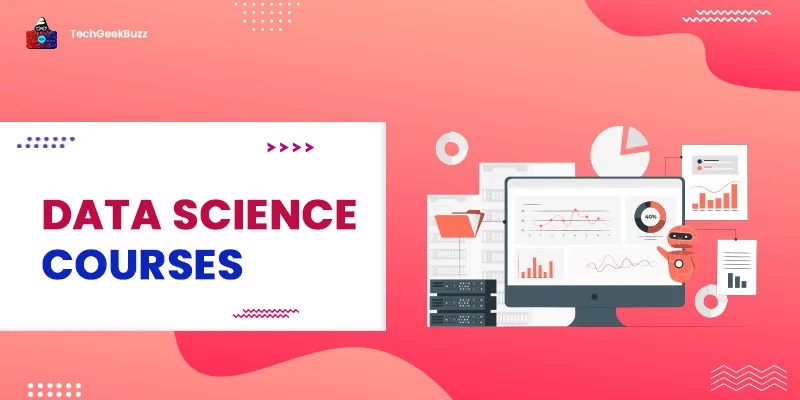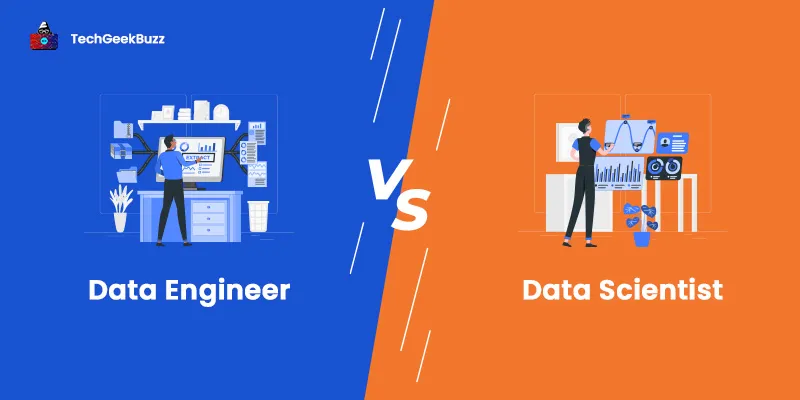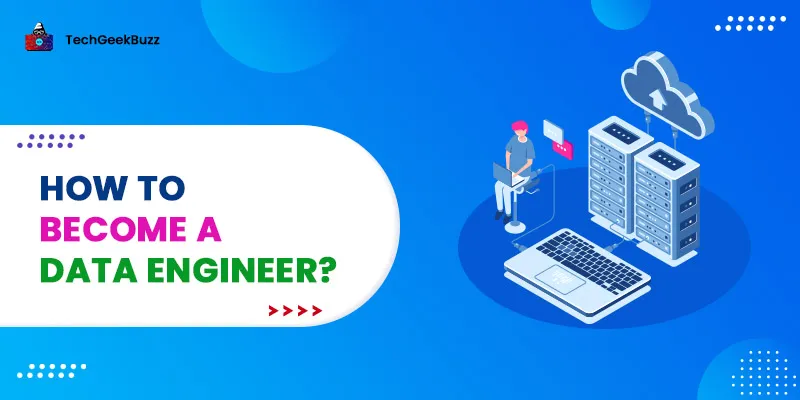Before we start exploring the top data science skills, you should be clear that tools and skills are completely different aspects. While it is an advantage to know about data science tools, you don't need to know loads of them. However, the right skills are a basic requirement for a data scientist. For example, there are many tools to visualize data, but the skills to understand what kind of data has to be visualized lie with the data scientist! You can learn to use the tools on the go but you need skills right from the beginning!
A Little About Data Science
Data science focuses on getting meaningful insights from the data collected from various sources. For example, Facebook generates humungous amounts of data every day, and by analyzing this data, Facebook can understand more about its users. It includes their likes and dislikes, activities, comments, groups, etc. This helps them in focused advertising and improving their own services too. To know the skills required for data science, we need to understand the various sub-areas of data science. Data science involves a series of processes and steps, and you can specialize in any or all of them. It is always a good choice to have a thorough knowledge of more than one phase. Here are the steps involved in data science:
- Looking at the business opportunity (defining the business problem).
- Finding data relevant to the opportunity (data collection).
- Clean, filter, and sort data (data cleaning).
- Perform exploratory analysis (Exploratory data analysis).
- Train the model and its accuracy (machine learning).
- Visualizing data (data visualization).
- Measure success (making business decisions).
The first two steps require you to have good business acumen. The next few require you to be technically sound, and for all these steps you need problem-solving skills, curiosity, and good communication skills.
Skills You Need to be a Data Scientist [Top Data Science Skills]
To be a capable data scientist, you need different types of skills: technical and non-technical apart from foundational skills like mathematics, statistics, computing, and domain knowledge. As a data scientist, you should possess the combined skills of a data analyst, machine learning engineer, and data engineer! For example, a data analyst need not have the know-how of machine learning concepts, but as a data scientist, you should have machine learning knowledge too. Here are the top data science skills you need:
Foundational Skills
1. Mathematical Ability
I have seen many people loathe at the name of math from childhood itself. Maybe what they learned as part of academics was purely theoretical, and they never understood where all of it was supposed to be applied. Well, you are in luck, because all the mathematics that you have studied before is put to practical use in data science. The following are math essentials you need to know:
-
Linear Algebra
Linear algebra forms the core of machine learning algorithms. It is nothing but an equation that finds the value of variables x and y. For example, 2x+y = 1, x+2y=1.But what are x and y? Rings any bells? Of course! The above equations are called linear equations and represent linear algebra. These linear equations can also be represented in the form of matrices or vectors . For example, a matrix representation would be:
2x x + y 2y = 1 1
A linear equation with 2 variables is a line, and we need only 2 dimensions to represent the same. But we can have n number of variables. For n variables, we need n dimensions, and it is easier to represent that with a matrix. We can perform many operations on a matrix, like addition, subtraction, multiplication, and inverse. Even the concepts of Single Value Decomposition, EigenVector and EigenValue, which are very useful for Principal Component Analysis are based on matrices. You can learn about linear algebra and matrix through this free MIT course .
-
Calculus
For optimization, you need to know concepts like derivatives and gradient descent, which are integral parts of calculus. These concepts find extensive use in machine learning and deep learning algorithms. Other than these, univariate and multivariate calculus are extensively used. These are used in regression as well as in the back-propagation of neural networks. Specifically, you should know limit, continuity, mean value theorem, maxima, minima, partial derivatives, differential equations, infinite series summation, chain rule and so on.
-
Statistics
Statistics is used in almost every phase of data science. From data summaries like finding the mean, median, mode, and central tendency to performing analysis using variance, covariance, and correlation, many statistical operations are performed on the data. Sampling, random number generation, measurement, etc. are done on every dataset. In fact, programming languages like Python and R are much popular for data science because of the availability of many statistical functions that can make a data scientist's job easy.
-
Probability
Where there is statistics, there is probability. Concepts like the expected outcome, likelihood estimation, conditional probability, random variables, probability distribution (normal, binomial, chi-square), probability calculus, Bayes theorem, central limit theorem, and hypothesis testing are all extremely important for ML and data analysis. For all the probability and statistics that you need, refer to our detailed article on statistics and probability concepts .
-
Discrete Mathematics
Since we mostly use programming languages for performing all the logic and computing, we often don't worry much about discrete math. However, if you are new to programming, it wouldn't hurt for you to learn these concepts before you start. These will give you a thorough understanding of the internal working of various data structures, such as trees and graphs. Some important concepts to learn are:
- Sets, stack, queue, graphs, array, hash table, and trees.
- Graphs, properties of the graph, and degree.
- Inductive, deductive and propositional logic.
- O(n) notation and growth of functions.
Although discrete math may seem dry in the beginning, it gets better over time. You will enjoy learning discrete mathematics through this beginner-level discrete mathematics course from Coursera .
2. Programming
As a data scientist, you will have multiple roles to play. You would be involved in application development, data management, application testing, applying algorithms and much more. Knowing programming skills will help you think critically and arrive at useful insights by answering the right questions. R and Python are the most popular programming languages for data science because of their rich set of libraries and ample support for statistical analysis.
-
Python
Python is easy to code and read. It is easy to learn, and if you know any other programming language, learning Python will be a breeze for you. You should be thorough with the syntax, object-oriented programming concepts, flow control, rich libraries like pandas, NumPy, and scikit-learn. You can check all about the important Python data science libraries here.
-
R
R is another programming language popularly used for data science. Python and R are often compared; however, both have their advantages and limitations. R can easily perform all the steps of data science from cleaning the data to machine learning. It has vectors and a rich set of libraries for graphs. Some popular libraries are ggplot2, dplyr, Janitor, and Shiny. To learn more about R, read our article on R for data science .
-
SQL
Since data science has everything to do with data, knowledge of SQL is essential. SQL forms the base of data collection, wrangling, sorting, filtering, extraction, exploratory data analysis, and other processing before any algorithms are applied to the data. You should know about SELECTing columns, aggregate functions like AVG, MAX, MIN, and SUM, and combining them using WHERE, AS clause, filtering using WHERE, BETWEEN, NULL, LIKE, etc., sorting and grouping using HAVING and GROUP BY.
3. Domain/Business Knowledge
While you will not be selling a product, balancing a budget or creating an advertisement, you should be thorough with the domain you are working on. That's because you should know what insights you should derive for solving a particular problem. You should be able to look at the bigger picture of the whole project.
Technical Skills (Hard Skills)
The above skills were technical enough, but they were basic or mandatory skills. The below skills are desirable, and you will surely get an advantage when you know more about data science. The below skills are specific to data science, and if you have decided to be a data scientist, you should be familiar with these:
1. Data Wrangling
Data wrangling or data munging is the process where raw data is transformed into a more useful set that can be analyzed. Raw data is complex and unstructured and has a lot of missing values, which need to be corrected to understand it better. Wrangling also includes discovering all the datasets from different sources and structuring the same before performing data cleaning. As a data scientist, you should know how to integrate your data from different sources, improve the quality of data and validate the dataset so that you can get better insights from it. Data wranglers use SQL extensively! Some tools like Excel, Google Dataprep and OpenRefine are quite popular for data wrangling. Python provides libraries like Numpy, Pandas, Matplotlib and more for data wrangling. In R, packages like dplyr, Purrr, and JSOnline are some good tools for data wrangling.
2. Machine Learning
Well, machine learning is the heart of data science. Building a model and identifying the most important patterns and trends is the main purpose of data analysis and helps make appropriate business decisions. Learning the different types of algorithms like supervised, unsupervised and reinforcement – and understanding when to use which algorithm is the key to getting efficient results using less time and resources. Some popular algorithms that are easy for you to start with are:
- Linear regression
- Logistic regression
- Decision tree
- k-Nearest Neighbor
- Naïve Bayes
We can implement most of the ML algorithms using the libraries provided by Python (with SciPy and scikit-learn) and R (with Caret, dplyr, and kernLab). Consequently, this helps machine learning engineers to focus more on their business logic and less on model training, building and validation.
3. Data Visualization
It is always better to represent data graphically. Firstly, it is easier to understand trends and patterns when explained graphically, and secondly, it gives a neat and clear distinction between various trends and important aspects of data. For example, a simple bar chart enables us to understand how data is grouped into various categories. Same way, a line plot can be used to define the relationship between 2 variables. Some other common plots that help visualize data are histogram, scatter plot, box and whisker, correlation matrices, and word cloud. Some good tools for visualization are Excel and Tableau. (Know which one is better for your project through this article on Excel vs Tableau .) Other powerful visualization tools are Power BI, Google Analytics and D3.
4. Software Engineering
Having some software engineering experience will help in your data science journey. At least knowing the roles of a software engineer will help you gain the same knowledge to prepare for your journey. Of course, a software engineer is usually an expert in at least one programming language. A software engineer can be a good asset in the data science team for having the following skills (usually by default):
- Writing reusable, modular code by following best practices, code refactoring.
- Writing proper comments and documenting the code steps.
- Knowledge of version control.
- Unit testing of code.
- Logging and various levels of logging.
- Collaboration with the other teams for build, deployment and testing.
5. Cloud
You might be wondering what role does the cloud has to play in any phase of data science. Well, the cloud connects everything via the internet and makes it easily accessible. For example, we can access database servers, data analytics and other software that may reside in any part of the world from anywhere through cloud technologies. As such, working knowledge of the cloud is among the top data science skills in 2022 (and beyond). Cloud makes data accessibility easy, fast and affordable. There is no need to store data locally as well as filtering, extraction, sorting, etc. can be performed without transferring data from central servers into local systems saving loads of bandwidth (remember, we are talking about huge datasets). Data science with cloud computing has a new name as it is so popular: Data-as-a-Service (DaaS). In this service, data vendors provide data storage, data processing, and data integration analytics services to companies over a network connection. The 3 most popular cloud computing platforms for data science are Amazon Web Services (AWS), Microsoft Azure and Google Cloud.
Soft Skills (Non-technical Skills)
Soft skills are as important as technical skills but you cannot acquire them by training or just reading books. These come with hands-on experience. You have to work on projects (in a company or from internet resources, courses, etc.) to practically understand the common issues, important highlights and how to extract important information from data. Data Intuition : This is the skill that sets apart a data scientist and data analyst. While a data analyst works on facts and data which is in front of eyes, data scientists think one step ahead. A data scientist has a keen eye on identifying important parts of data, just with a high-level look at the data. Critical, out-of-the-box thinking and data-driven problem-solving skills are very important for a data scientist to be able to look at data from different perspectives.
1. Communication Skills
A data scientist should be able to clearly communicate the findings and reports to the stakeholders and decision-makers. Good communication skills can help you put forward your point effectively and influence major decisions. Good communication doesn't just mean a good flow in English, albeit it is the ability to explain your points in the simplest possible manner so that your audience can relate to and understand your presentation or report.
2. Business Sense
To be able to explain your findings and insights to various stakeholders, you should know the business and technical jargon well. This builds trust and confidence in your work and helps you present your points in a much better way. Remember, as we already said, these are the skills that will come with time and experience.
Knowing Data Science Tools is an Advantage
While you can do everything on your own from scratch, using data science tools will help you save a lot of time and resources. Tools can make tasks easier. For example, with the data visualization tool Tableau, you can view different insights just by dragging and dropping. This will help you understand data in a better manner and that too in less time. Same way, there are a lot of machine learning libraries and packages that have common functionalities in place, so that you don't have to code those from scratch. That is why languages like Python and R are preferred for data science; they have loads of libraries to perform common math and statistical tasks. Our comprehensive list of data science tools will help you learn the tools you need for each stage of data science.
How to Start Learning Top Data Science Skills?
There are many free and paid courses on the internet. You can also buy some good books to get the basic knowledge and then go ahead with the courses. If you have a bit of programming knowledge and are from a math/statistics background, I would suggest you start self-learning and exploring before joining any big data science courses. If you do not have any programming or math background, start with those concepts first. Pick any one language and learn the basics of math and statistics . Here is how you can start learning:
1. Books and videos
Read books on data science, offline and/or online. Many books are available for free online. Here is a list of the best data science books . Complement your learning through videos and tutorials on YouTube and other sites for the topics on which you seek more information.
2. Coding
Be thorough with at least one popular data science programming language. If you already know C++/Java, it will be easier for you to learn Python or R. Further, knowledge of SQL is quite important. Start learning with Google's Python course .
3. Visualization Tools
Visualization tools can help you get into the data scientist mindset. You will be able to explore and view data easily so that you can explore various aspects of the data and find unintended insights as well. Learn more about data science tools .
4. Work on Projects
Try as many projects as possible. Datasets are freely available on the internet. You can also think of your own business problem and work on it.
5. Certifications
If you are planning to make data science your career path, certification will help you stand out from others. Other than the learning, you will be able to set yourself apart from data science courses provided by Coursera, Udemy, edX and other online learning platforms. And, having a basic understanding of the cloud environment will be a huge plus point.
Conclusion
With that, we have covered the top data science skills, but remember that the list can never be complete. There are many other small and big skills required to be proficient. However, you cannot be learning all of them at once. Also, you need to continuously upgrade your skillset to match the needs. Some are learned on the go, and you should be prepared for receiving new challenges and skills every other day! These are perhaps not as important as the ones we discussed but are surely nice to have, such as cloud, deep learning, Hadoop/Spark, and TensorFlow. Nonetheless, irrespective of the top data science skills, your desire to consistently learn and upskill yourself will help you become a highly skilled data scientist.
All the best!
People are also reading:
- Data Analysis Techniques
- Decision Tree in Machine Learning
- Best Data Analytics Tools
- Data Visualization Tools
- Data Science vs Machine Learning
- Data Science vs Artificial Intelligence
- Best Data Science Interview Questions and Answers
- SQL for Data Science
- What is Tableau?
- Data Analyst Roles and Responsibilities





Leave a Comment on this Post